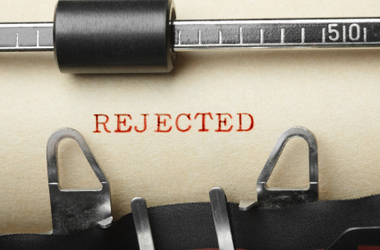
This is going to be a bummer, so you might want to stop reading now. Seriously, why not check out this page from Sonoma State instead? It gives you all the basic info about applying to graduate school for a clinical psychology Ph.D. (or Psy.D.), without any of the nasty stuff that I'm about to say.
That page covers the how of applying -- but what about the how likely, as in what are your chances of actually getting in? And if you get in, what are your chances of actually finishing the program and ending up licensed?
Well, you should read this 2011 Eye on Psi Chi piece on the probabilities of acceptance. They report that clinical psychology doctoral programs tend to be even more competitive than other fields of psychology. The acceptance rates are as low as 7% for research-oriented Ph.D. programs (e.g., U. Penn, which in 2012 actually only admitted 6 out of 434 applicants (1.4%)), but as high as 50% for free-standing, Psy.D. awarding professional schools of psychology (e.g. CSPP, San Francisco). The catch is that those high-acceptance rate programs cost between $30,000 and $40,000 per year; some of them aren't APA-accredited; and, many of their matriculants end up unlicensed and in deep debt.
But wait, it gets worse!
There were 97,200 bachelor degrees in psychology awarded in 2010. An awful lot of those psych majors want to go on for a doctorate in clinical psych. In 2010, 3,889 doctoral students signed up for the APPIC internship match, which is how you get your clinical internship, the critical 5th year of a Ph.D. or Psy.D. program. Only 72.6% of those students got an internship, which means that the unmatched folks either had to scramble for some less competitive internship or add another year to their training. (This matters because if you don't get an APA-accredited internship, then you can't work for some employers, e.g., the Department of Veterans Affairs, the largest employer of psychologists in the U.S.) Some folks think that the problem with the match isn't a lack of good internship slots, but rather a glut of poorly qualified grad students (mostly Psy.D. candidates from a handful of free-standing programs).
If you take the number of grad students who matched an internship in 2010 and divide by the number of undergraduate psych degrees awarded that year, you get 2,823/97,200 = 2.9%. Use the match applicant figure and you get 3,889/97,200 = 4%. Now this is rough figuring of course, and your mileage may vary, but doesn't it seem like the folks who are most likely to succeed in clinical psychology grad programs (success being defined as getting a good internship during their first matching attempt) represent the top 3% of psych majors? And maybe being in the top 4% of psych majors means that you are good enough to get into grad school, but maybe not good enough to thrive there?
Now, if you are a psych major and thinking about getting a doctorate in clinical psychology, maybe the first question you should ask yourself is: "Am I in the top 3% of the students in my major?"
In other words, of the last 100 psych majors who graduated from your program, or who are about to graduate, are you one of the three best? Is your GPA higher than 97% of your PS major peers? Were your SAT scores? Would the faculty at your college agree that you are amazing, simply amazing, and that a student as great as you comes along only, oh, once every 33 students or so?
No? Then maybe you should reconsider your graduate school plans.
No comments:
Post a Comment
Note: Only a member of this blog may post a comment.